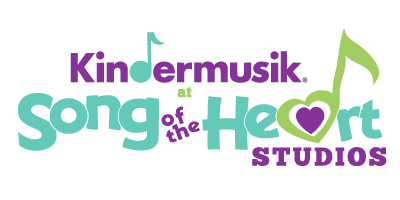Executive Function.
That sounds like a skill set a major CEO possesses, right?
The term executive function refers to a set of skills that are essential to the healthy development of young children and that lead to an overall healthier life. These skills must be learned, and music is one fun and easy way to help practice them.
What skills are grouped together as executive function?
The four main categories of executive function skills are:
- Self-control
- Cognitive flexibility
- Working memory
- Perspective taking
Although they’re listed as individual skills, they are often interwoven. When they are used together, executive function skills strengthen the very fabric of a healthy life– throughout a lifetime.
Let’s review each one, look at how children show these behaviors successfully, and how music can help boost their development.
SELF CONTROL
This skill set is probably the best known among the four. People with self-control are goal directed. They can sustain their attention as needed and remain calmly in charge of their actions, thoughts, and emotions. People with self-control regularly forgo immediate gratification in the service of achieving long-term outcomes.
Research shows that children ages 3-5 who regularly practice self-control skills go on to do well academically in school and to have adult lives that are healthier than those who do not. So what does self-control look like in 3-5 year olds? Young children with self-control do not struggle with attention span or finishing tasks, and they are not easily distracted. They tend to play well with other children, to share easily, and to follow directions.
How can music help to develop self-control in children?
Perhaps the best example of using music to develop these skills is known as a “stop and go” activity. As music plays, children are asked to move. Often, the instructions are very specific: “Lift up your feet and march around. March, march, march.” Then, following the cue words “Aaaaaaaand STOP” and the music turning off, children freeze and remain still until the music begins again.
COGNITIVE FLEXIBILITY
Adaptability, planning, and problem-solving are part of this executive function skill set. So are reasoning, mental play, and decision-making. You might know people who regularly ask questions like “What if?”, who like to tinker with concepts, who are often curious and easily fascinated. These people have cognitive flexibility.
So what does this skill set look like in 3-5 year olds? Young children with cognitive flexibility can switch gears and experience unexpected change without becoming flustered. They transfer their learning easily from one topic to another, and they are not usually troubled when they need to make choices.
When it comes to using music to positively impact cognitive flexibility, instruments come into play (pun intended). Give a child two instruments from the same “family” (like two different types of shakers) and have them explore how they are alike and different. Ask for descriptions of what the sounds are like (maybe comparing the musical sound to a “nature” sound). Then, ask the child to choose which instrument they want to play and say why.
WORKING MEMORY
Working memory overlaps the other three skills. People with good working working memories are organized and use information efficiently. They follow directions, finish tasks, and easily sort ideas into categories.
Young children with working memory skills are good listeners, obedient, and content to work independently because they understand what they need to do.
To develop these skills using music, try songs that have directions in the lyrics, requiring children to listen closely and perform corresponding movements. Kindermusik has plenty of songs like this!
PERSPECTIVE TAKING
When it comes to executive function research, the inclusion of this skill set is fairly new. Yet, these skills are particularly important for healthy social-emotional lives. Children with these skills understand other people’s points of view and have empathy. They reflect on what they observe about other people and respond appropriately.
The best way to increase these skills in children via music is to have shared musical experiences with them! When people sing together, dance together, move together to the rhythm, and share the emotions music evokes, they practice perspective taking!
***
Want to continue the intentional nurturing of your child while increasing their executive functioning? Keep on coming to Kindermusik through our Summermusik session and beyond. We’ll see you in class!
-Reposted from Kindermusik International

